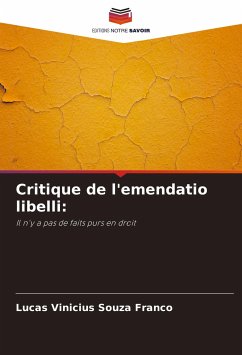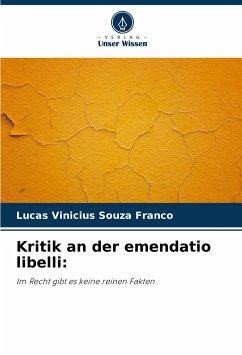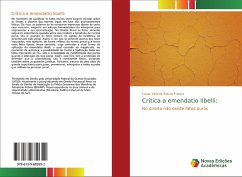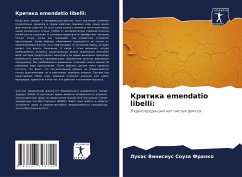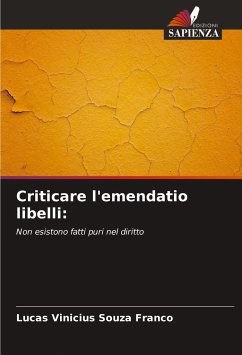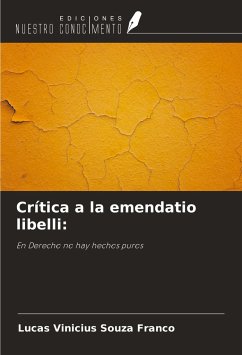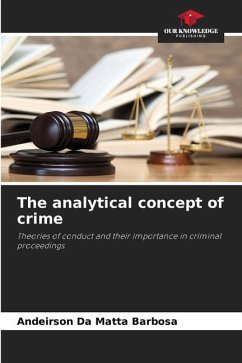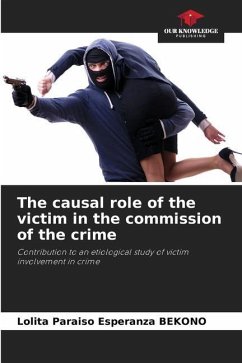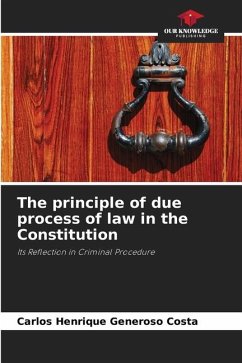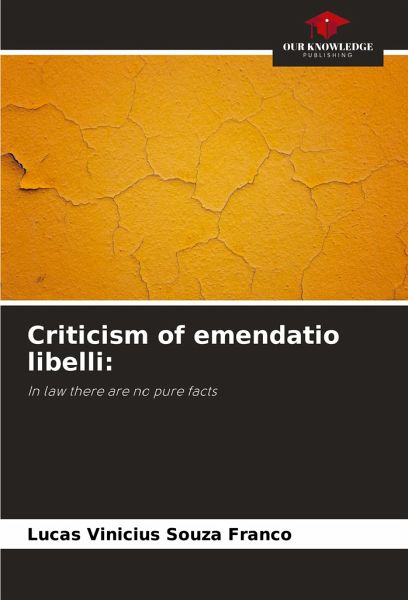
Criticism of emendatio libelli:
In law there are no pure facts
Versandkostenfrei!
Versandfertig in 6-10 Tagen
27,99 €
inkl. MwSt.

PAYBACK Punkte
14 °P sammeln!
When it comes to qualifying facts, doubts often arise about the limits and scope of legal rules in the face of factual events. In fact, the words of the law become imprecise in the face of a specific case, requiring a hermeneutic effort on the part of the interpreter in order to put them into practice. In criminal law, facts only acquire importance when they fall within the scope of a specific criminal type. Thus, the defendant is not only defending himself against the alleged facts, but also, reflexively, against the criminal rule that makes these facts typical. In this context, there is an u...
When it comes to qualifying facts, doubts often arise about the limits and scope of legal rules in the face of factual events. In fact, the words of the law become imprecise in the face of a specific case, requiring a hermeneutic effort on the part of the interpreter in order to put them into practice. In criminal law, facts only acquire importance when they fall within the scope of a specific criminal type. Thus, the defendant is not only defending himself against the alleged facts, but also, reflexively, against the criminal rule that makes these facts typical. In this context, there is an urgent need to challenge the current form of application of emendatio libelli, which grants the magistrate, at the time of sentencing, the possibility of changing the classification given to the facts imputed to the defendant, without the need for the parties to express their opinion on changing the criminal type. Thus, this book aims to defend the fact that the adversarial process is not merely factual, but also covers legal issues. It is therefore of great importance to judges, prosecutors, lawyers and all those who work in criminal proceedings.





